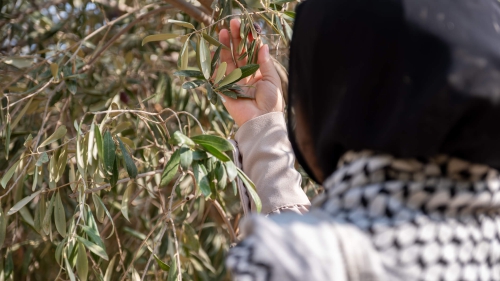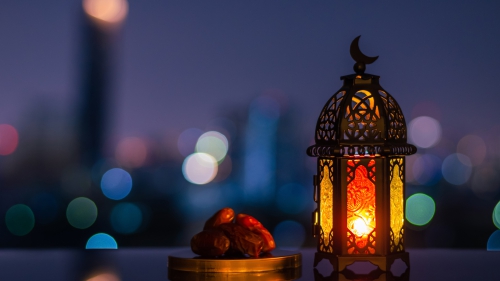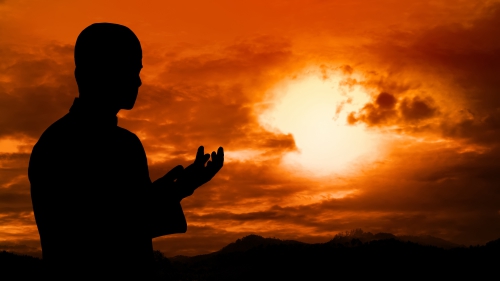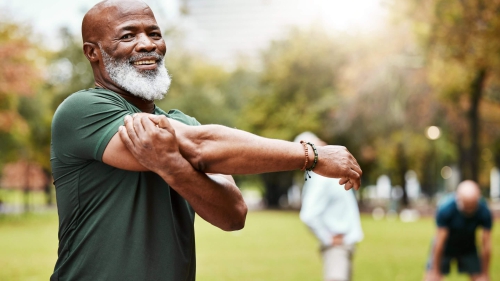Burnout, a.k.a. "The Great Exhaustion"

I’m just burnt out.
This statement frequently echoes through the halls of Maariya Quadri’s microcosm in the western suburbs of Illinois. Many seniors like her may experience "senioritis," or end-of-high-school exhaustion, after dealing with pressures from standardized testing, college applications, final exams, and making new, life-changing plans for their adult futures.
“The amount of stress and overwhelming-ness is real,” Quadri expresses. “It’s possible to reach a breaking point for some students.” The high school class of 2023 has dealt with two-plus years of learning during a pandemic. By the time they began settling into high school as freshmen, many had to switch to online learning, which continued through their sophomore years. Then, while still adjusting academically, socially, emotionally, and mentally, they were abruptly thrown back into the trenches once they returned to in-person learning as juniors.
“There was no time to process and adapt to the sudden change after change,” recalls Quadri. “Junior year is one of the hardest academic years in high school as it is, and our class had to come into it trying to find a ‘new normal’ after [COVID-19]. As seniors now, some of us are just going through the motions and running on steam at this point.”
What Quadri describes as a "breaking point" and "running on steam" are possible symptoms of something called burnout, which is not defined as a medical condition but as a type of psychological syndrome that tends to be a response to a specific environment or situation. According to the American Psychological Association (APA) Dictionary of Psychology, burnout is defined as “physical, emotional, or mental exhaustion accompanied by decreased motivation, lowered performance, and negative attitudes towards oneself and others.”
Sumaiya Malik* from Minneapolis, Minnesota, experienced exactly this definition of burnout. She recently quit her job in human resources after spending countless hours completing fast-paced projects, all while meeting immediate back-to-back deadlines.
“It was all about the ‘hustle culture’ at this corporation,” shares Malik. “I was managing 300+ employees, but my own supervisors were not setting a good example for me by working on weekends and after hours. Despite my crazy workload, I was always feeling like I am not doing enough or I need to do more.”
After a year’s time, Malik began to notice changes within herself. She was getting sick often, feeling drained, not sleeping well, and not wanting to be physically active. She would find herself wanting to go straight home after work to decompress, hardly having the energy to spend time with her family or do the things she enjoyed doing most.
“I was not myself,” Malik states. “I am typically a happy person, but this job was making me miserable. I would wake up and check my phone for work right away as we were told that everything was ‘urgent.’ Vacation time was limited. I dreaded coming back to work as I knew there was a lot waiting for me to do, and I was always thinking about work at the back of my mind. It was very unhealthy."
According to a 2009 study by Jesús Montero-Marín et al. for the Journal of Occupational Medicine and Toxicology, the term "burnout" was first used in 1974 by Herbert Freudenberger in the study “Staff Burn-Out.” In a 2001 article for the Annual Review of Psychology, Christina Maslach et al. defined burnout syndrome as a three-dimensional syndrome characterized by exhaustion, cynicism, and inefficacy, i.e., the opposite of engagement, described as energy, involvement, and efficacy.
In 2021 workplace burnout reached a record high, with 44% of employees reporting that they “experienced stress a lot of the previous day,” according to Gallup’s State of the Global Workplace 2022 Report. What is even more alarming is that women are more likely than men to struggle with burnout, according to the Women in the Workplace 2022 report from McKinsey and Company. This may be due to how much responsibility a woman carries both in and out of the home.
“People have a capacity to give only so much,” says AbdulAziz Syed, who is a licensed clinical social worker (LCSW) and certified sex addiction therapist (CSAT) at the Khalil Center in Lombard, Illinois. “When you give more than you have, you [naturally] burn out mentally, physically, emotionally, spiritually. You may experience fatigue, depression, anxiety, panic attacks, lack of satisfaction, etc.”
If someone is feeling stretched thin, Syed suggests reaching out and asking for support or offloading some responsibilities. In the working world, a seventy- or eighty-hour work week could mean it is time to slow down.
“A person feeling burnt out can feel isolated,” Syed notes. “The individual may not feel seen or heard or appreciated by the people around them. Talk to a friend who is willing to listen, and be open about what you are feeling. Whether it’s changes in your body or mood—anxiety, bowel issues, health issues, can’t enjoy things, low energy, wired or crashed, not emotionally regulated and feeling numb, irritable, frustrated, or volatile—recognize these early signs and chart a path out.”
Syed recommends that path out as a serious lifestyle change, starting with reducing access to email and social media. He states that we need to let our minds rest. Here is a breakdown of some of his practical tips to counter burnout:
1. Fix your sleep. Brush your teeth, put your phone away and don’t bring it into bed, and keep your room dark and cool.
2. Incorporate some type of movement into your day.
3. Practice targeted interventions. Don’t take work home, don’t check work after work, and create healthy boundaries.
4. Seek support.
5. Balance is key. We are the Ummah of balance ("the middle path").
Saimah Asghar is an Arabic and English teacher from the United Kingdom who is currently undertaking a diploma in Islamic counseling. She has delivered workshops, training, and coaching on personality typology to individuals, couples, and non-government organizations and believes burnout can be prevented if one has more self-awareness.
“People need to be aware of their strengths and give themselves what they need to thrive,” says Asghar. “If they don’t, they will feel unfulfilled or as if they’re rejecting their true selves or who they really are. For example, there are people whose personalities are being organized but being in touch with their emotions can potentially ‘slow down’ their productivity. If they’re not taking time to process their emotions, it will catch up with them and can result in negative attitudes towards themselves. Then there are others who don’t know how to say ‘no’ to people and set boundaries. They can end up overdoing and overworking and even doing things that aren’t benefiting them just to please others.”
Asghar states that people can even suffer from "relationship burnout." If an introvert is constantly around people and not getting a chance to withdraw and recharge, they can eventually burn out. She recommends taking an MBTI personality test to find one’s strengths and weaknesses and to learn about ways to communicate in different styles.
“We assume other people process information or make decisions the same way we do, but we have poor listening skills and need to learn to listen to understand each other and our own selves and what our bodies need,” says Asghar.
To save herself from this, Eamaan Rabbat from Arden Hills, Minnesota, likes to go for a drive or through a car wash. She is the director of education for Rabata, a non-profit organization dedicated to Muslim women and children’s education, spirituality, and community. On a yearly basis, she oversees roughly 2,000 students, 150 teachers, 200 volunteers, and 60 staff members.
“If you're only taking care of your duniya [worldly affairs], you will burn out,” Rabbat says. “Build in rest in your day and use the Prophetic example to find that balance.” Rabbat holds a master’s in educational leadership and administration, as well as a teacher certification in Islamic studies through the Ribaat Academic Institute. She relays the following example from hadith:
So both of them offered their prayers and Salman (may Allah be pleased with him) said to Abu Ad-Darda' (may Allah be pleased with him), “Your Lord has a right on you; and your soul has a right on you; and your family has a right on you; so you should give the rights of all those who have a right on you). Later on Abu Ad-Darda' visited the Prophet (Peace Be Upon Him [PBUH]) and mentioned that to him. The Prophet (PBUH), said, “Salman has spoken the truth.”—Sahih al-Bukhari Book 78, Hadith 166.
“When we follow Islam as the way of life, it protects us from us,” says Rabbat. “From a worldly sense, you have spent all you have in one place and are ignoring all aspects of your soul. We pause five times a day at least, forget about our day, we speak to Allah like a therapy consultation, and automatically reset with wudu and prayer with physical and spiritual recharge.”
*Name has been changed to maintain privacy.
Tayyaba Syed is a multiple award-winning author, journalist, keynote speaker, and educator. She readily conducts literary and faith-based presentations for a variety of schools, communities, and organizations, both online and in person. She is an elected member of her local school district’s board of education and lives in Illinois with her husband and three children. Learn more at www.tayyabasyed.com.
Reprinted from the Spring 2023 issue of Halal Consumer Magazine with permission from IFANCA and Halal Consumer Magazine.
















